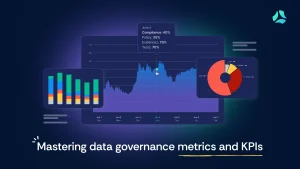
Picture this: It’s 2025, and the world of accounting has morphed into a sleek, efficient engine powered by artificial intelligence (AI). The days of sifting through mountains of paperwork, triple-checking figures, and experiencing the dreaded end-of-month crunch are fast becoming relics of the past. Instead, accountants now operate like skilled conductors, orchestrating a symphony of smart technologies to ensure precision and efficiency. Welcome to the future of accounting.
Why AI? The Need for Precision
In a world where the tiniest error can lead to monumental headaches, accuracy in accounting is non-negotiable. Imagine cooking a delicately flavored dish—use too much salt, and the entire meal is ruined. Similarly, one miscalculated figure can tip the scales in a company’s financial statements. This is where AI steps in, like a seasoned chef, meticulously measuring every ingredient. With its ability to process vast amounts of data rapidly and without fatigue, AI ensures that numbers are precise and reliable.
The Smart Tech Toolbox
AI technologies in accounting come equipped with an impressive toolkit designed to handle various tasks. Here’s a peek into what’s in store:
- Automation: Goodbye, repetitive tasks! AI automates everything from invoice processing to reconciliations, freeing up accountants for more strategic roles.
- Machine Learning: A branch of AI, machine learning algorithms learn from historical data to predict future trends, much like how a seasoned accountant anticipates tax changes.
- Natural Language Processing (NLP): NLP allows AI to understand and interpret human language, making it easier for non-tech-savvy users to interact with complex systems.
From Paper Trails to Digital Prowess
Remember the blotchy ink and crumpled papers that once dominated accounting offices? Those days are numbered. As AI integrates further into accounting practices, digital transformation is not just a buzzword—it’s a reality. Financial statements now reside in the cloud, accessible from anywhere at any time. It’s like having a digital accountant in your pocket, ready to work around the clock.
Challenges and Considerations
Of course, with great power comes great responsibility. The integration of AI in accounting isn’t without its hurdles. Consider data security—while AI can safeguard information, it also presents a new target for cyber threats. Additionally, the shift to AI-driven processes requires a cultural change within organizations. It’s not merely about adopting technology; it’s about fostering a mindset that embraces continuous learning and adaptation.
Looking Forward: The Accountants of Tomorrow
As AI takes over routine tasks, accountants are transitioning into advisory roles. They’re no longer just number crunchers but strategic partners in business growth. Picture an accountant as a navigator, guiding the ship through stormy financial seas using AI as their compass. It’s an exciting time where the focus shifts from mundane calculations to providing insights that drive decision-making.
Conclusion: Embracing the Future
In 2025, AI in accounting is not just a trend; it’s a transformation. It promises unparalleled accuracy, efficiency, and the potential for accountants to evolve into strategic advisors. As we embrace this future, it’s crucial to balance technology with human intuition and ethics. Let’s look forward to a world where smart technologies not only redefine accuracy but also enhance the human touch in accounting.






